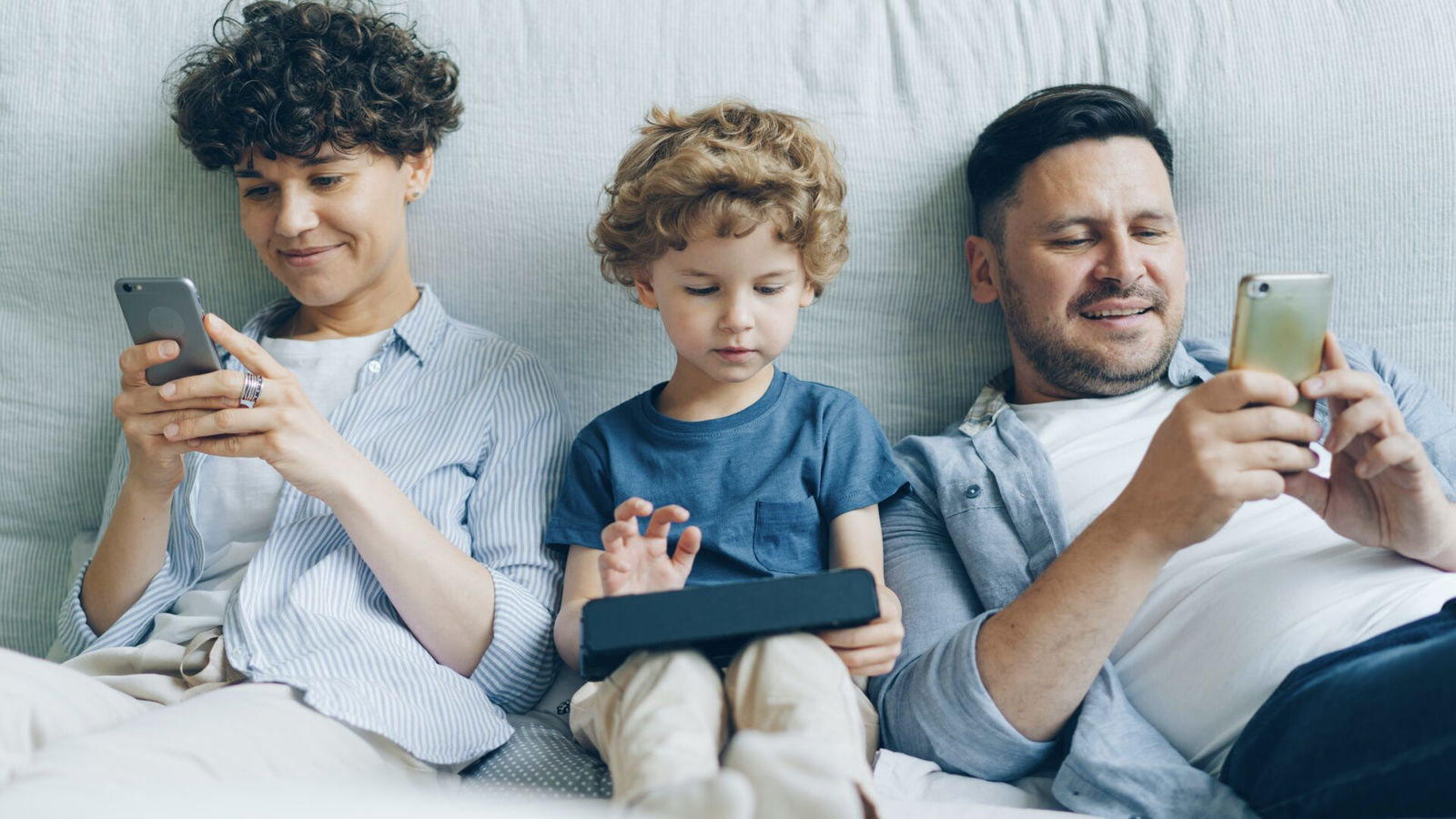
By Kayla DeKraker
We all know the negative effects screen time has on kids, but did you know that parents using technology in front of children can be just as harmful?
“We know that when screens are in use — either by a parent or a child — there is less talking, teaching and reading in households — and this may be a reason for the lower grammar skills and vocabulary,” said Dr. Jenny Radesky, co-medical director of the American Academy of Pediatrics Center of Excellence on Social Media and Youth Mental Health.
Called “technoference,” the term refers to the attention a parent gives to screens that would otherwise go to their children, and researchers say it’s a problem. A recent survey asked 2,000 parents about their phone use, and a sad half of respondents admitted that their children have asked them to put their phones away. In addition to this, 62% of parents admit that they spend too much time on their phone.
Related: 5 Tips to Help Your Child Manage Their Screen Time
However, 83% agree that spending time together as a family without screens is important.
“Whether you have a 2-year-old or a 14-year-old, it is important that all children experience various forms of play to stimulate their growing bodies and minds,” Ken Seiter, EVP of Marketing Communications at The Toy Association, explained. “Of course, playing on devices can make up some of that playtime, but parents should be mindful of the balance.”
That balance is key as parents’ screen use impacts a child’s development, according to a study out of Estonia.
“Our study shifts [the] focus from just children’s screen time to the role of family screen habits by showing that mothers’ and fathers’ screen use influences children’s language skills,” explained Dr. Tiia Tulviste, a professor of developmental psychology at Estonia’s University of Tartu. “It highlights the need for family-based approaches when managing screen time.”
That study came out in 2019, before the pandemic dramatically increased screen usage especially among children.
So, what are parents to do in a world filled with screens constantly vying for our attention? It is important that we establish healthy habits and boundaries to protect both our children and ourselves from the negative effects of screen time.
Instead of relying on your phone, create a plan and have activities ready to go that you can do with your child. This could include a “busy bag” for children, using real pencils and papers to learn instead of apps. Or explore a park, read books together, play a board game or work on a craft. The possibilities are endless.
Together we can create better habits to ensure screens don’t steal our time away from our children and their need to learn.
Read Next: Can Screen Time Be a Good Thing? It’s Complicated
Questions or comments? Please write to us here.


 - Content:
- Content: 
